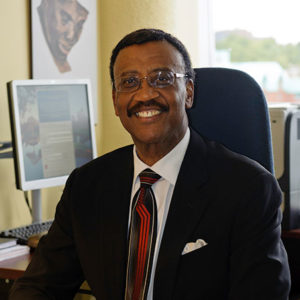“You remain optimistic, not by standing back. Optimism takes a lot of work.”
Doug Ruck QC, BA ‘72
 The Nova Scotia Barristers’ Society has appointed Douglas Ruck QC, BA ’72, Chair of King’s Board of Governors, to conduct an external review of the Barristers’ Society, identifying and addressing systemic racism. Never hesitant to help facilitate change, the former ombudsman for the province of Nova Scotia intends the review to be inclusive and extensive.
The Nova Scotia Barristers’ Society has appointed Douglas Ruck QC, BA ’72, Chair of King’s Board of Governors, to conduct an external review of the Barristers’ Society, identifying and addressing systemic racism. Never hesitant to help facilitate change, the former ombudsman for the province of Nova Scotia intends the review to be inclusive and extensive.
With a mandate to examine the policies, regulations and practices of the society, Ruck says it’s essential to go back to 1825 when the body was established to understand the historical underpinnings. Having dedicated his career to labour relations, occupational health and safety, and human rights issues, Ruck is seen as a community leader in many sectors. He plans to listen to and ask questions of people currently and historically associated with the society and legal profession, as well as the public, in order to come up with his recommendations.
After receiving his Bachelor of Arts from King’s in 1972, where he was president of the Students’ Union, Ruck then went to Dalhousie University’s Law School. He was the sixth Black person to be called to the bar in Nova Scotia. He remembers one of his first experiences in the Magistrates’ (now Provincial) Court when “I walked in with my new suit, my fresh briefcase and took my seat at the council’s table where all lawyers sit with their clients … The clerk of the court came down to me and said in a very polite manner, excuse me, but this area is for lawyers.”
Aware situations such as this continue to this day, Ruck wants to provide the confidentiality and confidence to people who will be heard through this review. An expansive task, he says the job is particularly challenging since the law relies on precedence and the status quo to move forward. With systemic racism so deeply embedded into our society and culture, it’s hard to reconcile the system with the job at hand. Yet, he’s optimistic about the opportunity and the potential.
In the nearly 50 years since Ruck first started practicing law, there have been measures to address inequality and discrimination such as the Marshall Inquiry, which looked into the wrongful murder conviction of Donald Marshall, an Indigenous person, in 1989, although he says there is much work to be done. Having initially viewed the Barristers’ Society as a regulatory body whose primary purpose is to monitor lawyers, he’s seen small changes, such as the hiring of an equity officer.
Most of all he’s pleased by how the review has been handled by the Barristers’ Society. He points to the opening comments on the society’s website that read, ‘We acknowledge and regret the existence of systemic discrimination in our justice system and within the Society.’ By starting with an apology, Ruck feels people will be more open to participating and more willing to recognize change when it happens.
Just as Ruck sees this review as a continuation of work done by those involved in the Marshall Inquiry, he hopes his work will be felt for generations to come. Knowing that members of the Barristers’ Society work in just about every industry in this province, he’s hopeful of having a deep and meaningful impact.
While grateful to the members of the society, Ruck says “… the real thank you goes to many of those people who are no longer with us. Those people who each and every day sacrificed themselves to open doors so that others could acquire the education and the means to take on such a challenge.” He adds, for example, “I say thank you to the women who fought for the right to vote and the suffragette movement and, of course, the Black Lives Matter Movement that has had a global impact.”
The son of Senator Calvin Ruck, a grassroots activist who committed his life to the betterment of life for members of the Black community, Ruck has followed his father’s path with his own distinguished career of service to community. Always willing to stand up and be counted on behalf of all marginalized people, Ruck says his father never spoke with aggression or led with anger. Grateful for the upbringing he received from both of his parents, Ruck’s family, and his 91-year-old mother, who now lives with him, often discuss what his father would think of our times, and movements like Black Lives Matter.
Ruck sees himself as part of a continuum, “I also begin by … accepting that this is not the beginning of the end.” In the footsteps of his father, he adds, “You remain optimistic, not by standing back. Optimism takes a lot of work.” Work Doug Ruck is not afraid to do.

